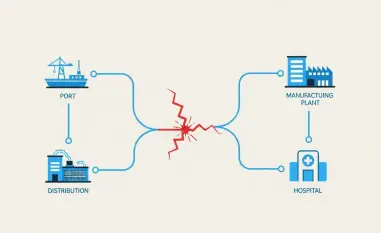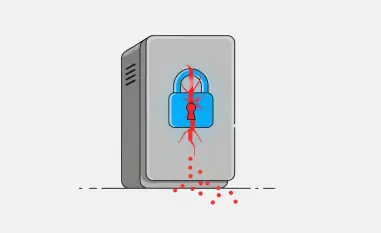In a significant move reflecting the heightened scrutiny of international tech companies, the European Union has launched a thorough investigation into TikTok over the transfer of its user data to China. This marks a pivotal moment in the landscape of data privacy as the app, owned by China’s ByteDance, grapples with the EU’s stringent General Data Protection Regulation (GDPR) standards. Despite TikTok’s efforts to address compliance, concerns persist regarding its handling of user information, especially considering that China is not recognized by the EU as having adequate data protection measures. The investigation underscores the EU’s commitment to safeguarding user privacy from potential international breaches, reinforcing the importance of strict regulatory enforcement.
Key Challenges in the Investigation
At the heart of this investigation is TikTok’s data transfer practices under the scrutiny of GDPR, which imposes tight restrictions on how companies can handle data across borders. Although TikTok initially claimed no user data was stored in China but accessed remotely by staff there, it was later found that some data was indeed stored on Chinese servers. This revelation has raised critical questions around TikTok’s transparency and legal compliance concerning cross-border data handling. The investigation aims to determine the legality and extent of these transfers, addressing the broader challenge of aligning global operations with local regulatory demands.
Background and Context
The current investigation by the EU builds on previous scrutiny, where TikTok faced a substantial fine for allowing Chinese access to European user data. The issue at hand is significant as it reflects broader concerns about privacy and data protection within Europe. In an era where digital privacy is highly valued, the EU is particularly focused on ensuring that personal data transferred outside its borders is subject to high protection standards. This has sparked a wider conversation about the balance between service delivery and privacy rights, especially in dealings with countries not acknowledged by the EU as having adequate privacy protections.
Research Methodology, Findings, and Implications
Methodology
The EU’s investigation employs rigorous compliance checks, including assessments of data transfer mechanisms and their adherence to GDPR. This involves detailed scrutiny of data access protocols, storage methods, and the transparency of user consent processes. Regulatory bodies, including the Irish Data Protection Commission, play a pivotal role in auditing TikTok’s practices, ensuring comprehensive evaluations of its data flow to identify any discrepancies with GDPR requirements.
Findings
The investigation unveiled that TikTok’s practices regarding data handling and storage in China did not align with their initially stated commitments. It was found that some user data was stored on Chinese servers, contrary to earlier claims of mere remote access. This discovery highlighted significant gaps in TikTok’s data management and compliance strategies, raising serious concerns about the company’s ability to protect user privacy in accordance with the EU’s GDPR.
Implications
The findings of this investigation have profound implications for TikTok’s data privacy practices and its operations within the EU. Compliance failures may prompt regulatory actions, necessitating changes in TikTok’s data management processes. Furthermore, the case serves as a warning to other multinational tech companies about the critical need to align with local data protection laws, underscoring the EU’s vigilant regulatory stance. It also paves the way for potential policy developments enhancing cross-border data protection.
Reflection and Future Directions
Reflection
Reflecting on this investigation reveals the complexities involved in reconciling international operations with local regulatory frameworks. TikTok’s situation underscores the challenges multinational companies face in adapting to stringent privacy norms, highlighting the need for robust internal compliance mechanisms. Stakeholders must navigate cultural and political nuances influencing data policies, with resolution strategies focusing on proactive transparency and robust data governance.
Future Directions
Future investigations should explore broader themes of international compliance and data security. Unanswered questions remain regarding the efficacy of current data protection standards in global contexts, indicating a need for ongoing research. As technology continues to evolve, there is a critical demand for adaptive regulatory models capable of addressing rapid changes and new challenges in data privacy, ensuring a future where international operations do not compromise user trust and security.
Conclusion and Final Perspective
The resolution of the EU’s inquiry into TikTok represents a critical moment for data privacy enforcement, setting a precedent for global tech firms operating within the EU. The investigation’s findings underscored TikTok’s need to enhance its data governance measures, reinforcing the importance of transparency and legal compliance. The case amplifies the ongoing dialogue about international data transfers, urging both policymakers and companies to prioritize user data protection. Looking ahead, ongoing vigilance and adaptive strategies will be essential in navigating the complexities of global digital privacy.













